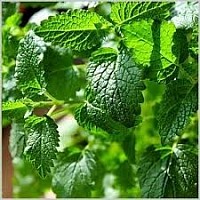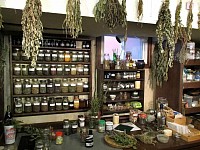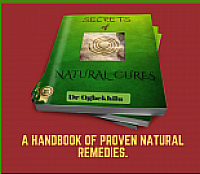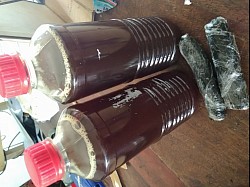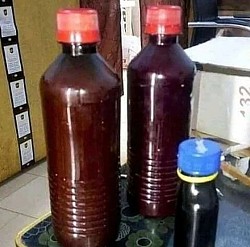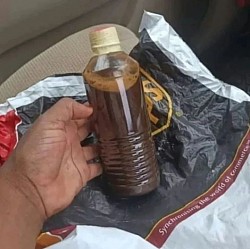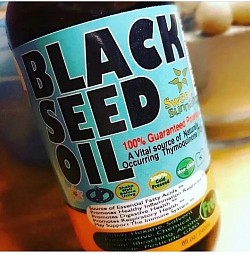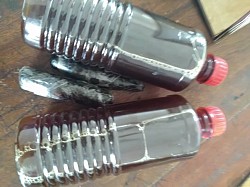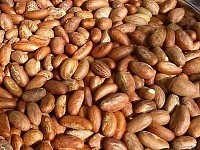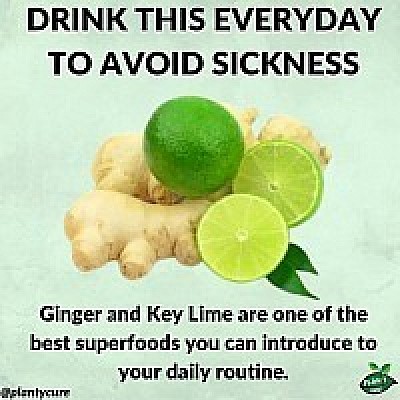Thanks for visiting my website.Please scroll down and also click on the menu
- I am a certified herbal expert licensed to prepare and distribute product all over the world. I prepare herbal product to cure different types of disease, my herbal product is 100% trusted without any side effect. my herbal product is fully organic and herbal, no artificial ingredient use my major area of specializations are cure for the various disease
SECRETS OF NATURAL CURES FOR ALL DISEASES.
Without the immune, can drugs heal?Think of the earth. Its diversities and many mysteries. How it continues to reveal its secrets in bits through old and recent discoveries. Now, all of those secrets and mysteries are in your body. No amount of discovery can ever exhaust all there is to know about the body. All we already know is just a drop in the ocean.The body is an intelligent entity! It knows more about itself than you will ever know. It is made with the ability to heal itself. However, it depends on YOU, the boss, to help it function to its maximum capacity. The way that is achieved is through habits and diet!But because of our poor habits and diet, we put our bodies through all kinds of sickness and inconvenience.If you eat the right food, containing the right minerals, and change unhealthy habits, your body can prevent or cure ANY DISEASE! Think of it. Why didn't the ancients suffer much from diseases like we do now? I have always said that in spite of the technological and scientific inventions of our time, we are the most ignorant dispensation of humans to ever walk the earth. It is not diseases that is killing us, it is lack of information.Most diseases nowadays have become resistant to western medicine because we've always been getting it wrong. Some people treat malaria too frequently in a year. Do you know what those drugs do to the immune system? Drugs don't heal. The body heals itself. Drugs actually aid the immune by weakening the antigens. Because we lack this understanding, we do not care about our immune. We eat dead food & all other kinds of poison. Someone once said the major cause of diseases, is poor bowel management. It begins from what you put in your belly. FOOD IS YOUR FIRST MEDICINE.Did you know that diseases are communication? The body is not only telling you that all is not well, it is also saying what needs to be done. But most times, our addiction to drugs make us deaf to what the body says.
WHAT DO YOU REQUEST FOR FROM DRAZIEGBE HERBS MEDICATION HOME
ALL HERB MEDICINE ARE AVAILABLE
1. Acute and Chronic Diarrhea
2. Allergic Rhinitis
3. Amenorrhea
4. Anemia
5. Atopic Dermatitis
6. Atopic vaginitis
7. Benign prostatic hypertrophy
8. HERPES
9. Bone Fracture
10. Brain Tumor
11. Bronchial Asthma
12. Bronchitis
13. Burns
14. Cancer and Tumor
15. Cataract
16. CERVICAL CANCER
17. CHOLELITHIASIS GALLSTONES
18. Colitis
19. Colds
20. Colon prolapsed and bowel pockets
21. Conjunctivitis
22. CONSTIPATION
23. Cough
24. CYST
25. Deafness of old age
26. Diabetes Mellitus Type 1
27. HIV CURE
28. Dysmenorrhea
29. Dyspepsia
30. CANCER
31. Edema
32. Endometriosis
33. Enteritis – swelling intestines
34. Epilepsy
35. GASTRO-ESOPHAGEAL REFLUX disease
36. Gingivitis
37. Glaucoma
38. Goiter
39. GOUT
40. Halitosis
41. HEART DISEASE AND Complication
42. Hepatitis
43. HPV CURE
44. HEPATITIS
45. HYPERTENSION
46. Immunodeficiency
47. Insomnia
48. Kidney diseases
49. Laryngitis
50. Leucorrhea
51. LIVER CIRRHOSIS
52. LOW SPERM COUNT
53. Mental Tiredness
54. MIGRAINE
55. Muscle and nerve pain
56. Muscular Degeneration
57. Muscular Dystrophy
58. MYOMA
59. Nephrolithiasis
60. Neuralgia
61. Neuromuscular Disorder
62. OSTEOARTHRITIS
63. Osteoporosis
64. Pancreatitis
65. Paralysis
66. Parasitism
67. Patients with debilitating disease
68. Pharyngitis
69. Piles after operation
70. Piles-external swelling
71. Pre menopausal Syndromeq
72. Prolapsed of the stomach
73. Psoriasis
74. Rectal Tumor
75. Respiratory Infections
76. Rheumatic Heart Fever
77. Rheumatoid Arthritis
78. Scurvy
79. Shortness of breath in children
80. Sinusitis
81. Skin rash
82. Skin ulcer
83. Spinal diseases
84. STROKE
85. Systemic Lupus Erythromatosus
86. Tendonitis
87. Thrombosis
88. Thyroid Problem
89. Tinnitus
90. Tonsilitis
91. Toxic blood and Acidosis
92. Toxins in the body
93. Trichomonas Vaginalis
94. Ulcerative Colitis
95. Underweight and Malnutrition
96. Urethritis
97. Vaginitis
98. Varicose veins
99. Vertigo
100. Weakness of the lower leg
ETC
Are you 100% sure that you are ready to patronize our herbal product Now?
We offer a range of licensed traditional herbal medicinal products that can be used to prevent or relieve the symptoms of many common ailments and are an alternative to conventional medicines.All of our herbal medicines are registered under the Traditional Herbal Registration scheme which means that they are of pharmaceutical grade and meet specific safety and quality standards based on traditional usage.
Is There A Guarantee That Your Herbal Medicine Will Be Delivered? Unequivocally, UNCONDITIONALLY, Absolutely… YES!
CONTACT DRAZIEGBE NOW TO AVOID DELAY IN YOUR ORDER
Delivery Days
2-3
Satisfactory
%100
Approved
NAFDAC
Experts Work
%100
FOOD IS YOUR FIRST MEDICINE
Did you know that diseases are communication? The body is not only telling you that all is not well, it is also saying what needs to be done. But most times, our addiction to drugs make us deaf to what the body says.Here are a few habits to stop and start:1. Stop using microwave to heat food. It works with radiation, and radiation is cancerous.2. Stop consuming food that is more than two days old. It is dead food.3. Pay closer attention to what your body is 'saying'. Just listen. Especially when you have a symptom. It usually communicates the solution along with the symptom.4. Stop taking more bottled drinks than water.5. Chew food properly before swallowing.6. Stop drinking cold water.7. Start taking deep breaths everyday. This one is magic. Although there are countless breathing techniques/therapies out there, be guided. If you don't know what you are doing you may create problems for yourself. Breathing techniques are usually supplementary to my therapies. I gave one breathing technique for detoxification on my page on facebook. If you have not seen it check it out here. If you saw it and participated in the exercise, let me share some of the health benefits of that particular breathing technique:a. It alkalizes your blood. When you do the technique, you take in more oxygen and energy to your cells. This will raise the PH of your blood up to and over 7. This is how your body is alkalized. This will in turn prevent the build up of lactic acid and burst inflamations.b. Quick relief for high blood pressure. c. It is a natural pain reliever.d. It relieves stress and anxiety.e. You will experience uplifting emotions. Good for mood swings.f. Physical strength booster.g. It boosts your immune system by helping your vital organs to function optimally.h. Enhances concentration and focus.i. Heals allergies, etc. I can go on and on.8. Find opportunities to exercise on the go.9. Stop hatred and anger. Negative emotions weaken vital organs like the liver, kidney, heart, etc. Avoid anything that will make you you feel guilty. Guilt is a poisonous emotion!10. DRINK MORE WATER. Your body is in similitude with the earth that it was made from, and that it lives on. The earth is made up of about 70% water, and so is your body. This is not a coincidence. If you can realign your life with this natural order, you will be a living miracle of healing and blossoming health! Do this by making sure that 70% of what you put in your body everyday is water.
Traditional Health Benefits of Bitter Kola
Bitter kola, also known as Garcinia kola, is a widely grown plant in Central and Western Africa. It has a long history of use in traditional African medicine and is believed to offer numerous health benefits. Bitter kola contains various nutrients, including carbohydrates, lipids, proteins, vitamin C, calcium, potassium, iron, and caffeine. In this article, we will explore ten remarkable benefits of bitter kola that you may not be aware of. From its potential antimalarial properties to its effects on weight management, blood glucose regulation, and respiratory health, bitter kola has gained recognition for its potential therapeutic value.
Antimalarial Properties
Bitter kola is believed to possess chemical compounds that act as antimalarial agents. One of these compounds, called kolaviron, is a natural antioxidant and anti-inflammatory phytochemical that has been found to have antimalarial effects. Research suggests that bitter kola extracts containing kolaviron can inhibit the growth of malaria parasites and reduce the severity of malaria symptoms. While bitter kola cannot replace conventional antimalarial medications, it may serve as a supportive therapy or a preventive measure in areas where malaria is prevalent.
Weight Management and Hunger Suppression
Bitter kola is known for its ability to suppress hunger and promote weight management. It acts as a natural appetite suppressant, making you feel fuller for longer periods. By reducing hunger cravings, bitter kola can help control calorie intake and support weight loss efforts. Additionally, bitter kola acts as a powerful thirst stimulant, encouraging increased water consumption. Staying hydrated is essential for overall health and can aid in weight loss by promoting proper digestion, metabolism, and toxin elimination. Remember to incorporate bitter kola into a balanced diet and exercise routine for optimal results.
Blood Glucose Regulation
Research suggests that bitter kola seeds have the potential to regulate blood glucose levels, making them a possible adjunct therapy for diabetes mellitus. The active compounds in bitter kola may enhance insulin sensitivity and promote glucose uptake by cells, leading to better blood sugar control. While bitter kola should not replace prescribed diabetes medications, it may offer additional support in managing blood glucose levels.
Relief from Cold and Fever
In traditional medicine, bitter kola has been used as a remedy for cold and fever symptoms. It contains bioactive compounds that can help alleviate respiratory congestion and provide relief from chest colds. Bitter kola works by enlarging the alveolar sac and duct, allowing for improved airflow and mucus clearance in the respiratory system. It may also possess antimicrobial properties that help combat the underlying causes of respiratory infections.
Aphrodisiac Properties
Bitter kola has long been regarded as an aphrodisiac, particularly for men. Research suggests that it contains compounds that can enhance sexual desire and address erectile dysfunction. Bitter kola may promote increased blood flow to the genital area, which can contribute to improved sexual performance. It is important to note that individual experiences may vary, and more research is needed to fully understand the mechanisms behind bitter kola’s aphrodisiac effects.
Immune System Support
Bitter kola has been shown to have positive effects on the immune system. It contains bioactive compounds that can modulate immune responses and help the body adapt to stress. By supporting immune function, bitter kola may enhance the body’s ability to defend against infections and diseases. It is important to maintain a healthy lifestyle that includes a balanced diet, regular exercise, adequate sleep, and stress management for optimal immune system function.
Glaucoma Prevention
Glaucoma is a group of eye diseases characterized by increased pressure within the eye, which can lead to vision loss if left untreated. Studies have found that using an eye drop made from a garcinia kola extract can help treat and prevent glaucoma. The active compounds in bitter kola may help reduce intraocular pressure and provide relief from glaucoma symptoms.
Osteoarthritis Relief
Bitter kola has been recognized for its potential benefits in alleviating symptoms of osteoarthritis. Research suggests that bitter kola contains compounds with analgesic and anti-inflammatory properties, which can help reduce pain and inflammation in individuals with knee osteoarthritis. These compounds may also improve joint health and mobility.
Lung Health Promotion
Bitter kola contains saponin, an antioxidant that has cleansing and purifying properties. These properties can contribute to improved lung health by widening the alveolar ducts and sacs, strengthening the lung tissue’s fibers, and help respiratory function.
Benefits for Pregnant Women
Contrary to popular belief, bitter kola has been found to provide potential benefits for pregnant women. It is believed to aid in the prevention of nausea and vomiting during pregnancy. Additionally, bitter kola may help strengthen the uterus, provide essential nutrients for the expecting mother, and support healthy blood circulation.
In Summary
Bitter (Garcinia) kola, with its wide range of potential health benefits, has been valued in traditional African medicine for centuries. From its antimalarial properties to its effects on weight management, blood glucose regulation, and respiratory health, bitter kola offers a diverse array of potential therapeutic applications. However, it is important to note that further research is needed to fully understand and validate these benefits. If you are considering incorporating bitter kola into your health regimen, it is advisable to consult with a healthcare professional for guidance and to ensure it complements your overall health and treatment plan.
Source Your Agric Products With Neogric
Neogric is a trusted global order fulfillment and sourcing solution company with deep expertise in the Agric industry. Our end-to-end supply chain solution makes the export of quality agric products easy, quick, and safe. Whichever region of the world you are in, be it Europe, Asia, USA, Canada, Other North/Central American countries, Africa, South America,or Oceania, you can reliably order your agric products and we will ensure it is successfully delivered to you.
History of Herbs
This is a little about how herbs started serving us The history of herbalism is closely tied with the history of medicine from prehistoric times up until the development of the germ theory of disease in the 19th century. Modern medicine from the 19th century to today has been based on evidence gathered using the scientific method. Evidence-based use of pharmaceutical drugs, often derived from medicinal plants, has largely replaced herbal treatments in modern health care. However, many people continue to employ various forms of traditional or alternative medicine. These systems often have a significant herbal component. The history of herbalism also overlaps with food history, as many of the herbs and spices historically used by humans to season food yield useful medicinal compounds, and use of spices with antimicrobial activity in cooking is part of an ancient response to the threat of food-borne pathogensA BRIEF HISTORY OF HERBS one of the oldest herbs in history is the popular Ginkgo biloba. Fossil records show that Ginkgo has been on earth at least since the Paleozoic period.Egyptians wrote one of the earliest known recorded medical documents around the 1500 BC called Papyrus Ebers. This 20-meter long scroll documents 700 plant-based remedies.The first recorded herbal study, called the Shennong Bencaojing, was written around 2,000 BC by the Chinese Emperor Shen Nong (The Divine Farmer). He is known for a multitude of innovations such as seed preservation, dietary revolution (he advocated a vegetable-focused diet) and tasted hundreds of herbs. The document contains descriptions and information for 300 plants.During the Middle Ages, monks grew medicinal herbs. The liquor Bénédictine was made at the Benedictine Abbey of Fecamp in Normandy with 27 different plants and spices.Native Americans introduced the colonists to plants and herbs such as Black Cohosh, which is still used today for relieving menstrual cramps and menopause symptoms.* In fact, the American College of Obstetricians and Gynecologists recognizes the value of Black Cohosh.In the early 1900s, innovations in chemical analysis allowed scientists to extract and modify active ingredients from plants. In America, clashes within the medical community and a growing infatuation with isolated chemicals led to the decline of herbal remedies. However, even today 40% of all pharmaceutical drugs are based on botanicals.Today, the World Health Organization estimates that 80% of people rely on herbal medicines for some part of their primary healthcare. In fact, 70% of German physicians prescribe plant-based medicines.Herbal medicine’s effectiveness and safety have stood the test of time. The popularity and longevity of herb use throughout the world are undeniable evidence of the healing power of plants.The use of herbal medicines has been extensively studied in Nigeria among adult and paediatric population with chronic illnesses such as herpes, hpv, epilepsy, hypertension, diabetes mellitus, cancer, sickle cell anemia, arthritis, asthma Etc… Only a very few studies have specifically evaluated herbal medicine use among the general population. The current study assessed the prevalence of herbal medicine use among a general population of adults without chronic illnesses. A high prevalence of 66.8% observed in our study is similar to the rate (69.4%) observed in another adult population (with or without chronic illnesses) in Nigeria where herbal medicines were used concurrently with conventional medicines. However, the current rate of herbal medicine use was higher than the rates reported in Nigeria among adults with hypertension (39.1%), diabetes mellitus (46%), epilepsy (47.6%) and cancer (51.9%), and similarly higher than the rates (37.8%- 40%), herpes virus (24.1%) reported among adult patients in a setting of a health maintenance organization in Central Texas city, United States of America and among a general population in Finland, where herbal remedies were defined in the context of alternative medicines. The current rate was also almost thrice the value (23%) reported in children with asthma, epilepsy and sickle cell anaemia.Herbal medicines were used for a variety of health conditions ranging from malaria to blood enrichment. Contrasting findings have been reported in the United States where herbal remedies were predominantly used to treat common cold and for general health maintenance. Malaria was the commonest indication for herbal medicine use in this study similar to a previous study in Nigeria. However, only 20% of our population used herbal medicines to treat malaria compare to 80% in the previous study. The wide disparity in the proportions of herbal medicine users for malaria in both studies may be as a result of the differences in herbal medicine definition. While we define herbal medicines as the use of plants’ parts for medicinal purposes, other studies defined herbal medicines as finished, labeled medicinal products of plant or non-plant origin. Malaria is a common public health problem in Nigeria that may adversely affect both human and capital resources. The emergence of chloroquine and sulphadoxime/pyrimethamine resistant malaria in Nigeria may have informed the use of herbal medicines by the respondents.It is of concern that one-fifth of herbal medicine users in our study had no specific reason for the use. The lack of knowledge of potential harms of herbal medicines may have encouraged this practice. Given the high proportion of the participants (66.8%) who were herbal medicine users and the wide range of indications for their use, it is remarkable that only 12 herbal medicine preparations, involving 22 plants species, were used by the respondents. This finding is however contrasting to other studies that reported the use of high number of different plant species for chronic diseases such as diabetes in South Africa, inflammatory diseases in South-western Nigeria, and a wide range of acute and chronic illnesses in India. The exclusion of participants with chronic illnesses may have accounted for the low use of herbal medicine preparations observed in our study. The range of herbal medicines used by the respondents is quite different from those reported in other studies in Nigeria, Finland and the United States. This may be explained by the varied health conditions and cultural differences in each of the populations studied. Of the 12 different herbal medicine preparations used by the respondents, four of them (‘agbo jedi jedi’, ‘agbo iba’, ‘ijebu ode’ mixture and splina) were in their crude forms, while the remaining eight were refined into packaged forms. The regulatory framework in Nigeria has encouraged local production of herbal medicines in refined packaged forms, hence the proliferation of packaged herbal medicines in the Nigerian markets. Only the eight packaged herbal medicine preparations are likely to be certified by the National Agency for Food Drug Administration and Control (NAFDAC

